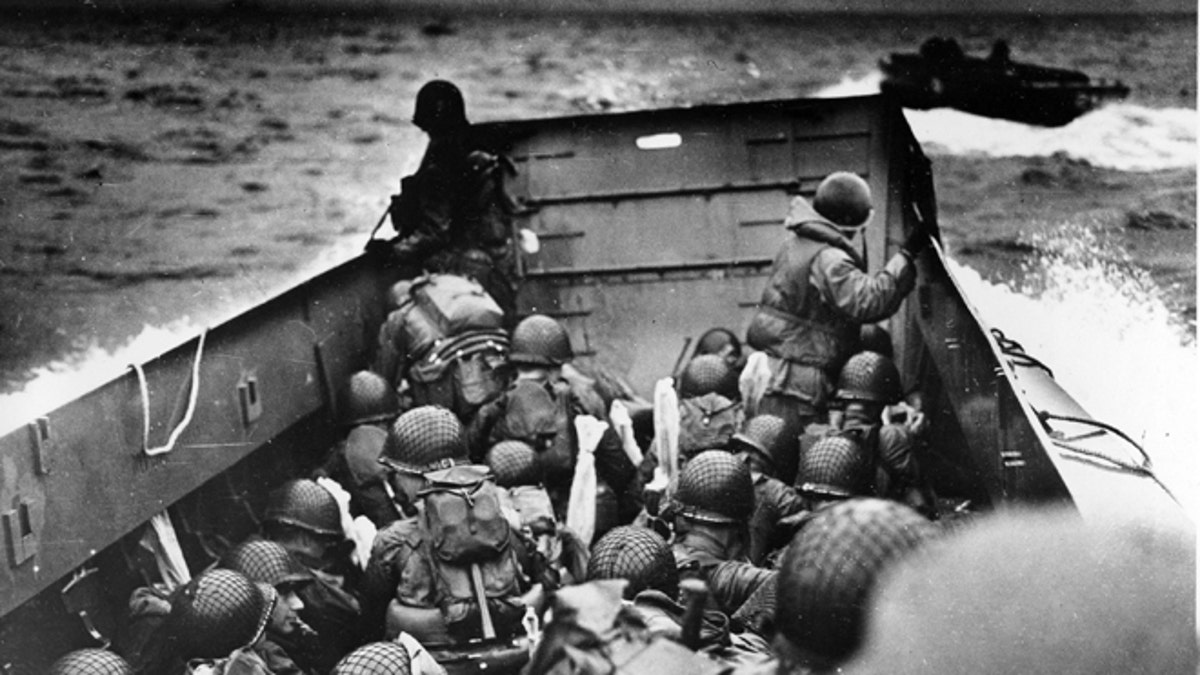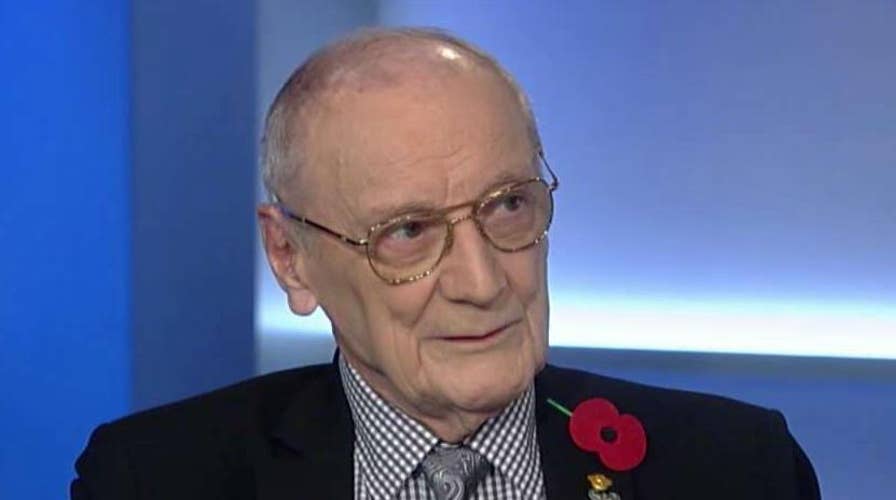D-Day veterans reflect on the lessons learned during their time in the service
Harry Miller and Colonel Frank Cohn reflect on their memories from World War II.
This week, we will remember June 6, 1944 -- how 156,000 Allied boys stormed the beaches of Normandy and scaled 150-foot cliffs under withering fire. At an enormous personal cost, they were determined to restore freedom, peace, order, and life to a continent overrun by Nazis. It is good we remember but remembering imposes a burden.
Two days after Allied troops liberated Rome, “Operation Overlord” was launched by General Dwight Eisenhower, then the Supreme Allied Commander. American boys had to take Omaha Beach, a five-mile beachhead linking British troops on Gold to the east and Americans at Utah to the west. American dead at Omaha that day numbered 1,465; 3,184 wounded; 1,928 missing; 26 captured.
D-DAY'S 24 HOURS CHANGED 20TH CENTURY, AND EUROPE, FOREVER
Storming Omaha Beach involved living through release from landing craft, slogging through ocean, crossing 200 yards of open sand (soon littered with bodies), then scaling a massive rock wall (Google “Normandy cliff wall”) into dug-in German bunkers -- all under raining mortars, artillery shells, small arms, and “interlocking fields” of machine gun fire.
The men who died threw themselves at this impossible task with knowledge and inconceivable courage; the men who lived also did that, and always counted the heroes who did not make it home -- the ones buried under rows of white crosses and Stars of David just above the beach.
Many of us are blessed to have grown up among WWII boys who got home, grew into men, became fathers, built America, rebuilt Europe, and aged to grandfathers. Now, the ones we still have, are old men with extraordinary knowledge. Their knowledge is what I want to talk about.
Standing on Omaha Beach some 40 years after D-Day, I was young. I strained to see what they had seen, tried to imagine what these boys -- younger than I was then -- had done, what they had felt, suffered, endured and accomplished. Frankly, I could not. That is part of the knowledge they have, which Hollywood and books cannot replicate.
In college, I worked at a YMCA one summer. A quiet WWII veteran took care of the place, and he had a hard time hearing. One day, I asked him about his wartime experience. His story tumbled out. His Landing Craft Assault (LCA) was hit by a mortar on approach. Every soldier was killed, except him. The concussion threw him and took his hearing, but he lived. He was grateful for every day.

FILE - In this June 6, 2014 file photo, allied troops crouch behind the bulwarks of a landing craft as it nears Omaha Beach during a landing in Normandy, France.
Growing up in a town of 500, one of my high school teachers -- a father of six -- was at Omaha Beach that fateful day. He never talked about it. Only later did I learn his LCA hit the sand, the ramp came down, and the front row of soldiers were all killed. In row two, he was fast up and out, got promoted to captain on the beach, and later earned the Croix de Guerre for heroism at Argonne. He never talked about it, but he had knowledge.
His wife’s only brother, also from our town, earned the Distinguished Service Cross after he was killed at Sicily helping save his company.
Another local was a scout in the Italian campaign -- creeping to the front lines nightly to light up German positions for American artillery. He journeyed from Naples, through Anzio, Rome, and across the Arno River, into the Po Valley, chasing Nazis up through the Brenner Pass. He never talked about it, until late. He had deep knowledge -- the sort it takes a lifetime to process.
Some who risked all at Normandy remain with us. Some who were at Sicily, Anzio, Bastogne, Iwo Jima, Okinawa, and a thousand other life-and-death, all-depends-on-winning-there battles are with us. They won a war that still makes the world shudder.
And so, who did this extraordinary thing? Who threw their lives into the teeth of evil to recover and preserve freedom? Famous generals? Yes. But mostly American boys, ages 16, 17, 18, 19, 20.
American boys pushed the Nazis back from what was supposed to be “death at the waterline” on Omaha Beach. They were joined at Normandy by other boys from Australia, Poland, France, Greece, Belgium, the Netherlands, Czechoslovakia, and New Zealand. They were boys.
As we reflect on June 6, 1944, let’s remember the impossible accomplishment and the knowledge these boys were forced to gain early and bring home.
CLICK HERE TO GET THE FOX NEWS APP
What is the burden remembering imposes? It is enormous and modest. It is being equal to our time, worthy of their sacrifice. That is the enormous side: doing what we must do to preserve freedom in our time. The modest is this: they are still with us. Go visit a WWII veterans’ home, family friend, old teacher, or close relative, and say thank you.
They will not come to you, but they have knowledge. They saw things you cannot imagine, even if they still keep the memories close. Perhaps because they do, we owe double. Just visit, let them know we will preserve what they preserved for us. We will keep the faith.





















